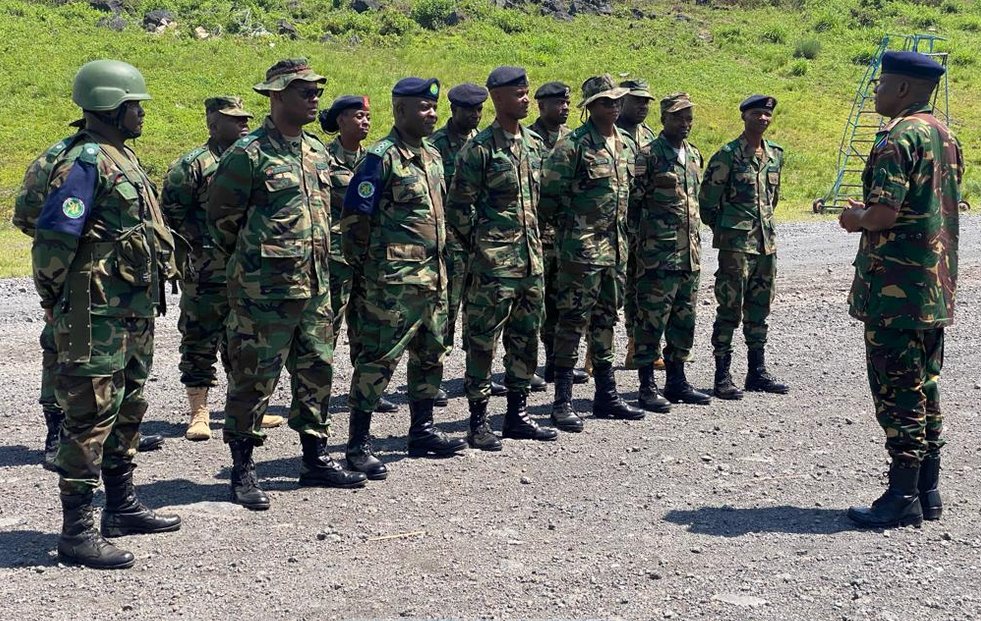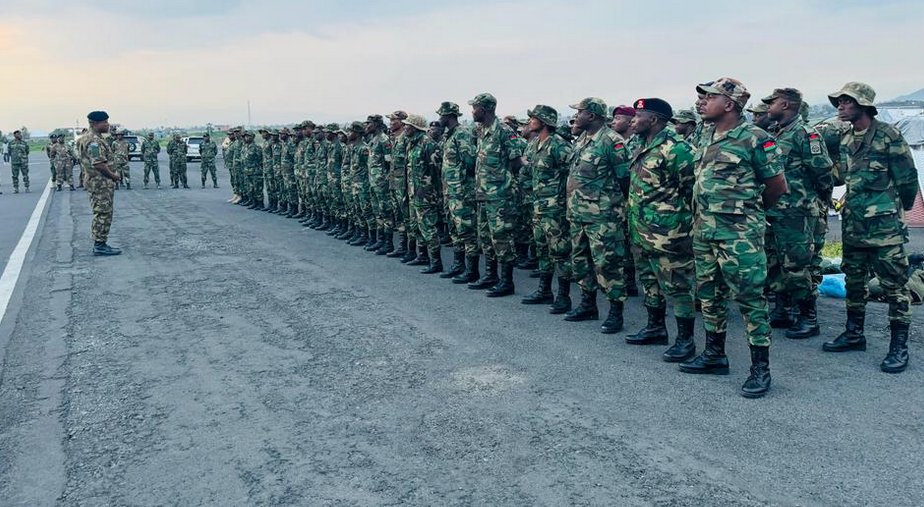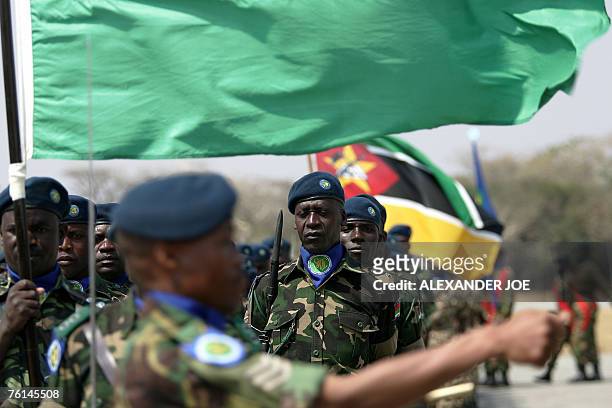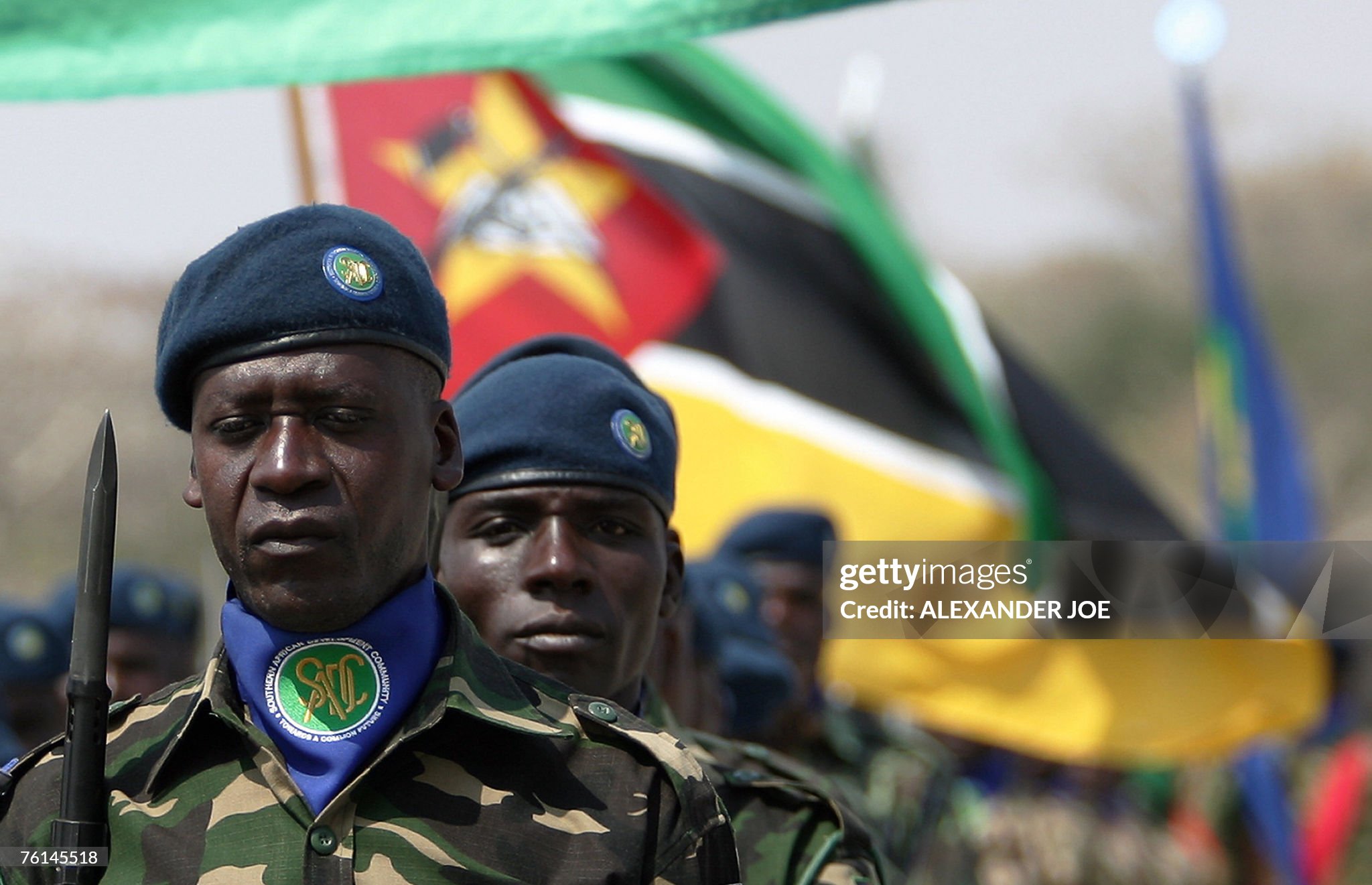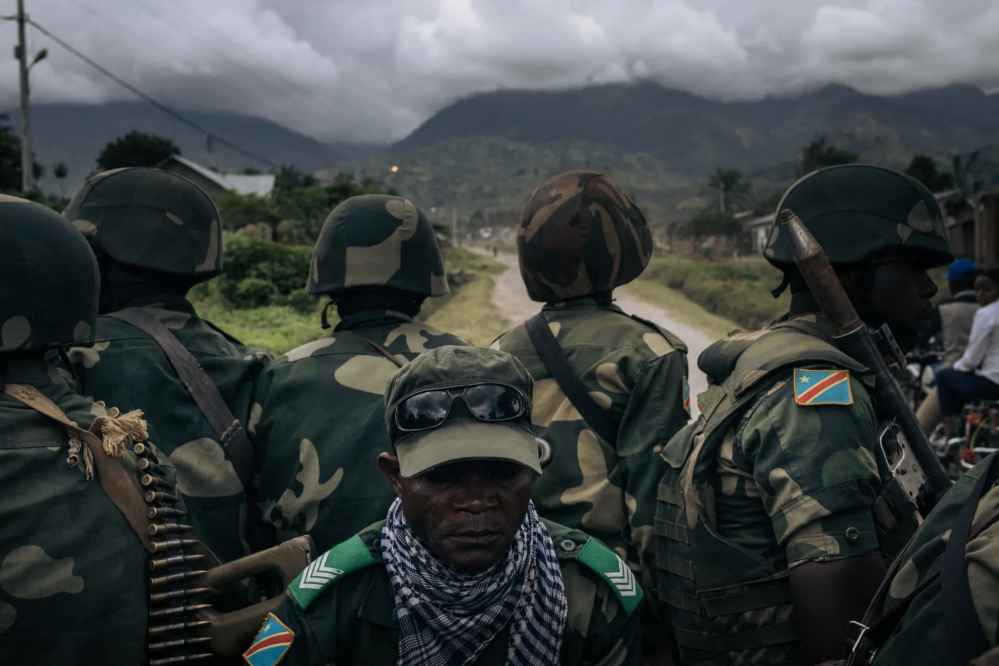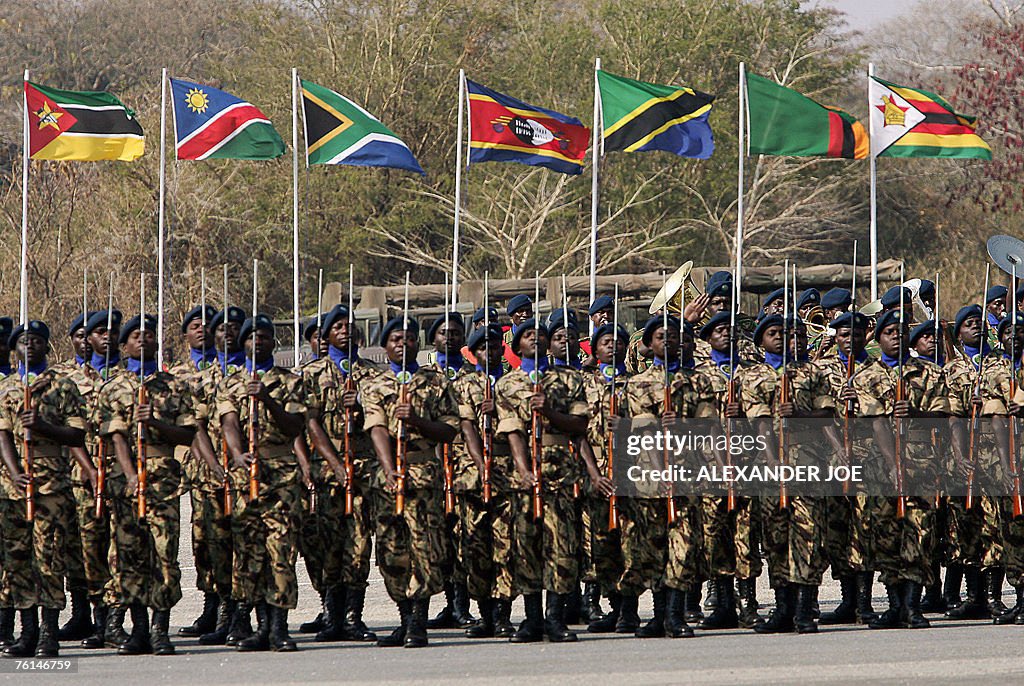Regional
SADC forces in eastern DRC doing worse than what Apartheid did to South Africans
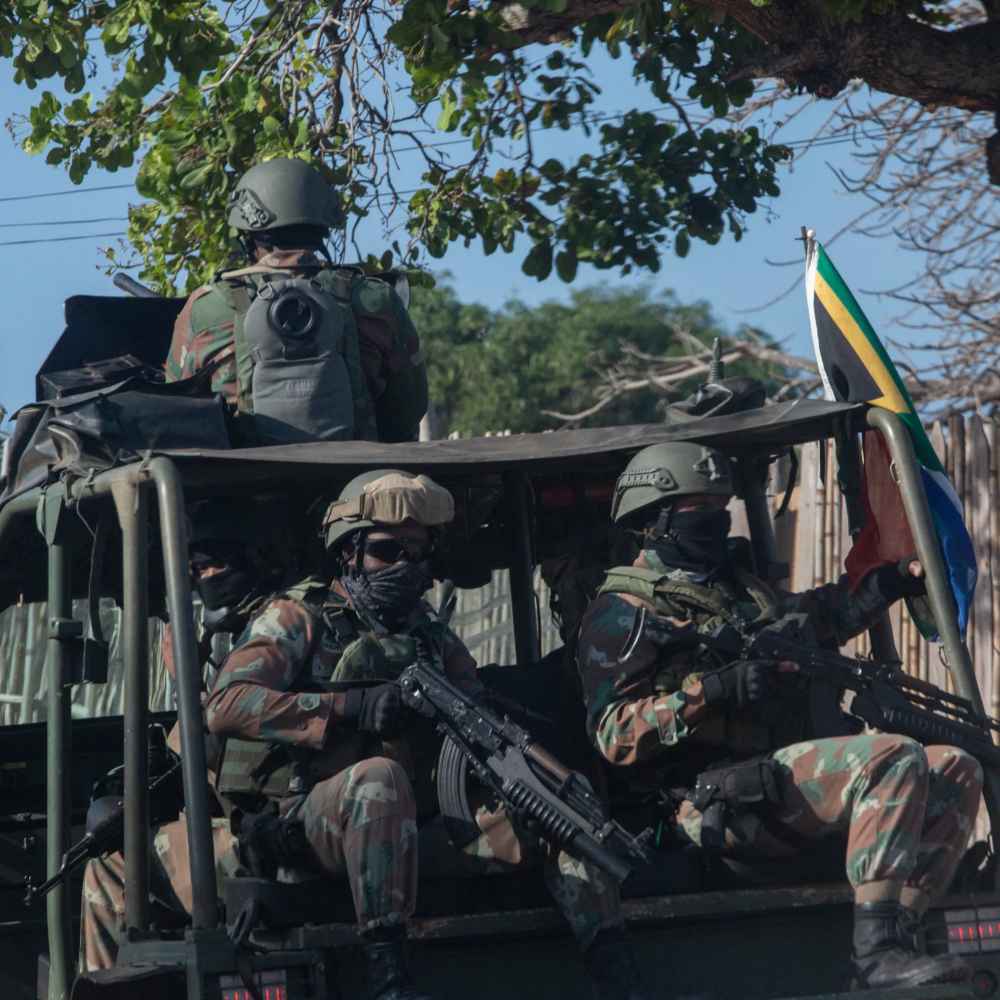
KAMPALA,
UGANDA
The Southern African Development Community (SADC) sent troops to eastern DRC to help President
Félix Tshisekedi fight and eliminate M23 rebels only despite the fact that the
volatile region has more than 260 armed groups. SADC countries that deployed troops
to DRC are South Africa, Tanzania, and Malawi.
Burundi, a member of the East African Community, also has
troops there under a bilateral arrangement with Kinshasa.
Burundian troops are supporting the Congolese army coalition
which comprises the SADC forces, European mercenaries and other militias groups
including the Rwandan genocidal group, FDLR.
Reliable sources claim that from the recent attack by SADC on
M23 positions at a place known as Mweso, six soldiers from South African
Defence Forces (SADF) were killed, while Burundi and DRC lost 17 and 72, respectively.
The call for SADC troops came after the DRC government forces,
FARDC, and its coalition failed to defeat the M23 rebels and push them out of
captured territories including the border town of Bunagana.
The SADC forces moved into DRC after Tshisekedi dismissed the
East African Community regional forces (EACRF) that deployed in eastern DRC
after the decision by EAC heads of State to take measures to stop the war in
eastern DRC.
The fall out between Tshisekedi and EACRF was a result of the
latter refusing to fight the M23 rebels, with the belief that military force was
not the appropriate solution to the crisis in eastern DRC.
Since the problem between M23 rebels and the DRC government
is political in nature and has prevailed for decades, the EAC bloc believes
that it is only political and diplomatic means like dialogue between the two
sides that can bring about a peaceful settlement of the conflict.
This is not the first time that SADC forces have come to
fight the M23 rebels in DRC. In November 2012, the M23 rebels captured the city
of Goma but were later chased out by SADC forces.
The fact that the rebellion resurfaced again, a decade later,
is an indication that although SADC celebrated the defeat of M23 rebels then,
the root causes of the conflict were not addressed.
The cycle can keep on repeating itself.
People who fight for a just cause never give up.
The case of South Africa fighting against apartheid and the
liberation of South Sudan should be an eye opener.
It took the ANC almost 50 years to fight against apartheid.
Nelson Mandela served 27 years in prison under harsh
conditions but did not give up. The SPLA took 28 years to liberate themselves
from the Khartoum government. M23 rebels are fighting for their survival
against an existential threat.
The fundamental question here is whether SADC is helping DRC
to solve the crisis or making it more complicated. Thousands of innocent people
have been displaced and others killed by heavy artillery shelling by the SADC
forces since they started engaging M23 rebels.
South Africa which is leading the SADC contingent knows very
well how apartheid was bad for South Africans. The term “apartheid”,
an Afrikaans word, derived from the French term “mettre à part”, literally
translated to “separating, setting apart,” is currently in operation in DRC
based on ethnicity.
The Apartheid system legalized racial segregation in which
one racial group was deprived of political and civil rights. In DRC, the
M23 rebels represent a segregated group, the Kinyarwanda speaking Congolese
Tutsi community.
The
question dates back in history when colonial borders were set up dividing
communities that belonged to neighboring countries.
Although
majority M23 rebels speak the same language as the people of Rwanda
(Kinyarwanda), they are not Rwandans as Tshisekedi and the regimes before him
denied them their political and civil rights.
Unfortunately,
DRC authorities continue to run away from their responsibility of uniting the
country and have externalized the problem, making Rwanda a scapegoat.
The DRC
authorities have engaged in hate speech and incited citizens to hunt and kill people
from Kinyarwanda speaking Tutsi communities. Hundreds have been arrested,
tortured and killed. The Congolese Tutsi have been harassed and told that they
are foreigners who do not belong to DRC.
Thousands
of Kinyarwanda speaking Tutsi sought refuge in neighboring countries and farther
abroad to save their lives.
SADC’s
military intervention in DRC ignores the M23 rebels’ plight where they face
threats of ethnic cleansing. The decision by SADC, and more especially South
Africa, to help Tshisekedi in his ethnic cleansing agenda betrays Nelson
Mandela’s legacy.
What
SADC forces are doing in eastern DRC is worse than what the Apartheid regime did
to South Africans.
When
he opened a case in The Hague against Israel, Ramaphosa said, “As a nation that
fought and defeated apartheid, we have a particular obligation to stand up for
justice and fundamental human rights for all people, everywhere.
It is
this obligation that informed our application to the International Court of
Justice (ICJ) to halt the violence unleashed by Israel on the Gaza Strip.”
Nelson
Mandela and Thabo Mbeki knew very well the problem of the Kinyarwanda speaking
Tutsi community in eastern DRC, but today, questions are asked as to what has
blinded Cyril Ramaphosa from seeing the eastern DRC crisis in the right
perspective, as Mandela and Mbeki did?
It is
a big shame for the leader of a country that suffered Apartheid to be
supporting an ethnic cleansing agenda in DRC.
In
November 2012, when the UN Special Adviser on
the Prevention of Genocide, Alice Wairimu Nderitu, visited eastern DRC, she
warned of the violence and the abuse targeting of civilians based on their
ethnicity.
M23 rebels are fighting to protect the targeted community and,
sadly, SADC is fighting on the side of those targeting the Congolese Tutsi community.
Genocide scholars have pointed out that hate speech is a
precursor to genocide and what the SADC forces are doing in DRC in supporting a
government that is targeting Congolese Tutsi for elimination, is worse than supporting
Apartheid.


